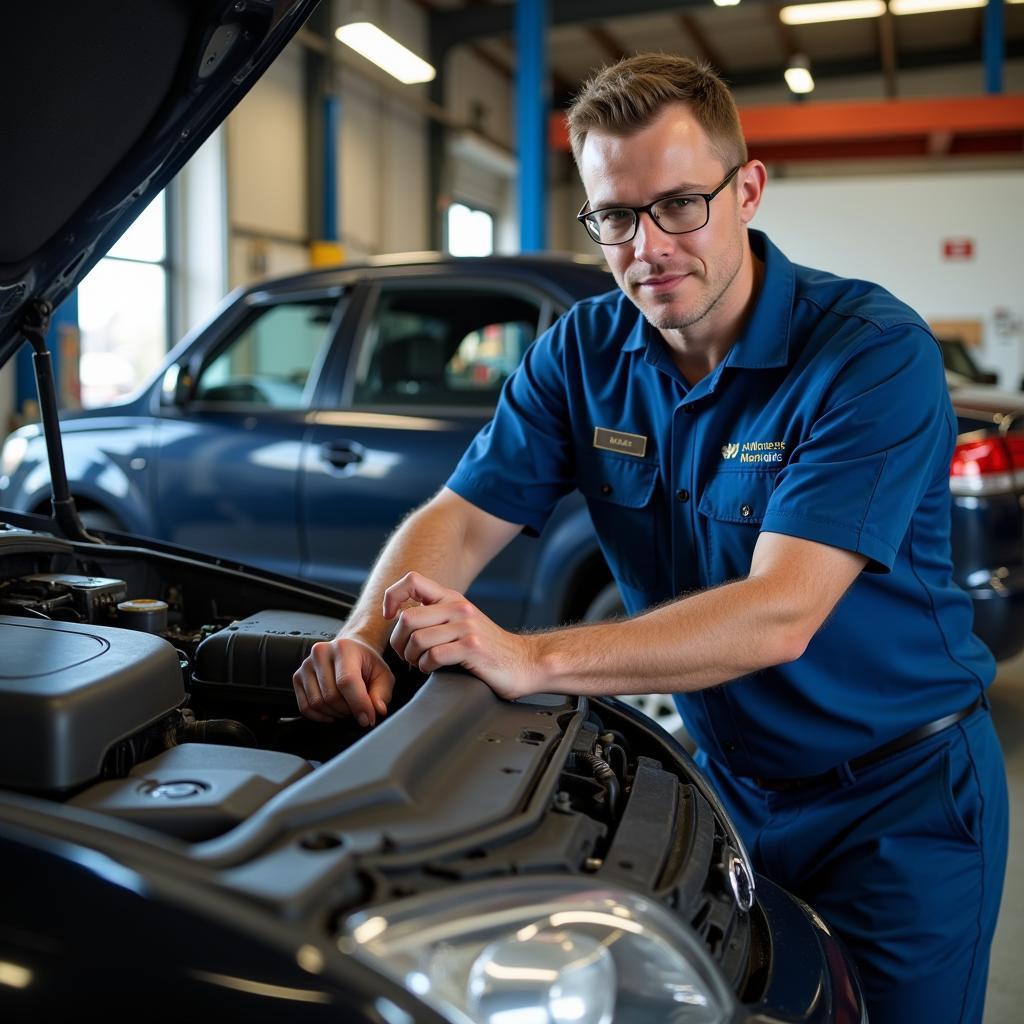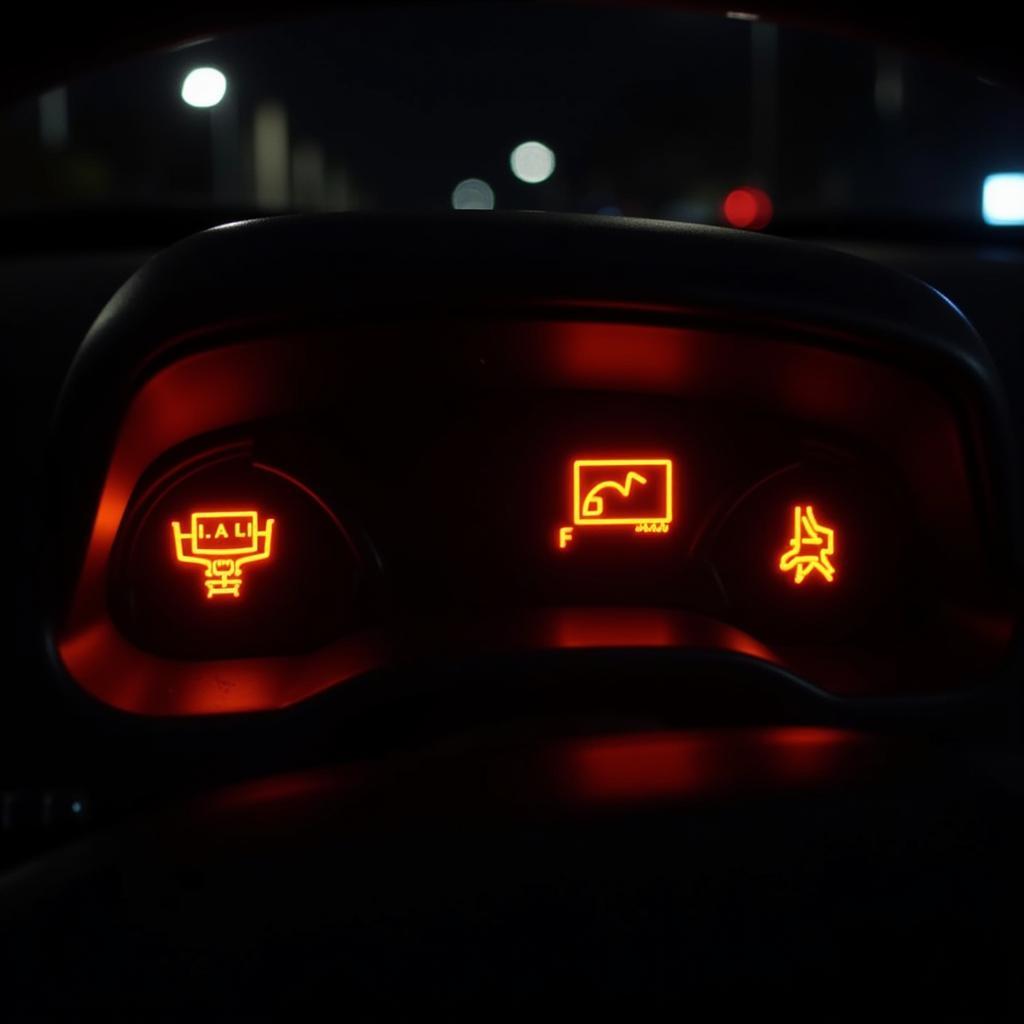Should I Service My Own Car?
As a car owner, it’s only natural to want to save money wherever you can. So when those service reminders start popping up on your dashboard, you might be tempted to roll up your sleeves and tackle the job yourself. But is servicing your own car really a good idea? Let’s weigh the pros and cons.
The Appeal of DIY Car Service
There’s a certain satisfaction that comes with doing things yourself, and for some, car maintenance falls squarely in that category. Here are some reasons why you might be thinking about servicing your own car:
- Cost Savings: This is often the biggest motivator. Garages can be expensive, and you’re essentially paying for labor on top of the parts themselves.
- Learning Experience: Working on your own car can be a great way to learn about how it functions and gain a deeper understanding of its mechanics.
- Convenience: Depending on your schedule and access to a garage, servicing your own car can be more convenient than booking it in for a service.
The Potential Downside
While the DIY approach can seem appealing, it’s important to approach it with a realistic perspective. Here are some key considerations:
- Safety First: Working on a car involves inherent risks. If you’re not familiar with proper procedures and safety precautions, you could injure yourself or cause damage to your vehicle.
- Technical Expertise: Modern vehicles are complex machines. A simple oil change might seem straightforward, but more involved maintenance tasks require specialized knowledge and tools.
- Warranty Implications: Did you know that performing work on your own car could potentially void its warranty? Always check your warranty terms before undertaking any DIY maintenance.
- Hidden Problems: A professional mechanic is trained to spot potential issues that might not be obvious to the untrained eye. Skipping professional servicing could lead to more serious and expensive problems down the line.
Factors to Consider Before You Begin
Before you grab your wrench, ask yourself these questions:
- What Does Your Owner’s Manual Say? Your owner’s manual is your best friend. It will outline recommended service intervals and may even provide instructions for basic maintenance tasks.
- What Are Your Local Regulations? Some areas have strict regulations regarding vehicle maintenance and disposal of fluids like oil. Make sure you’re aware of any local laws before getting started.
- Do You Have the Right Tools and Equipment? Basic car maintenance requires more than just a screwdriver and a wrench. You’ll need the right tools for the job, and these can add up quickly in terms of cost.
- Where Will You Work on Your Car? Having a safe, well-lit, and well-ventilated space to work is crucial.
 Professional Car Service
Professional Car Service
What Services Can You Realistically Do Yourself?
Some basic car maintenance tasks are relatively simple and can be performed by car owners with even minimal experience. These include:
- Changing Your Windshield Wipers: This is a straightforward task that can save you a few bucks and ensure optimal visibility in inclement weather.
- Checking and Topping Up Fluids: Regularly checking your oil, coolant, brake fluid, and windshield washer fluid levels is essential. Topping these up is usually a simple process.
- Changing Your Air Filter: Replacing a dirty air filter can improve your car’s performance and fuel efficiency.
- Replacing Burnt-Out Light Bulbs: This is a quick fix that can often be done with basic tools.
[For a comprehensive look at what’s involved in a standard car service, check out our article on what gets done on a car service.]
When to Call in the Professionals
For anything more complex than basic upkeep, it’s always best to consult with a qualified mechanic. Here are some tasks best left to the pros:
- Engine Work: Anything involving your engine is best left to the experts. This includes oil changes (unless you’re confident in your abilities), filter changes, and more complex repairs.
- Brake Repair: Your brakes are critical for your safety, so never attempt to repair them yourself unless you have the necessary skills and experience.
- Electrical System Work: Modern cars have sophisticated electrical systems that should only be handled by qualified electricians.
- Timing Belt Replacement: This is a complex job that requires specialized tools and knowledge.
If you’re unsure about any aspect of car maintenance, it’s always best to err on the side of caution and why should you service your car.
Should I Service My Own Car? The Bottom Line
Ultimately, the decision of whether or not to service your own car is a personal one. There’s no right or wrong answer. If you’re mechanically inclined, have a good understanding of your car, and possess the necessary tools and space, then DIY servicing might be a viable option for basic maintenance.
However, if you’re unsure about any aspect of car maintenance or if your car requires more specialized repairs, it’s always best to seek professional help.
Remember, regular car servicing is essential for keeping your vehicle running smoothly and safely. Whether you choose to do it yourself or leave it to the experts, make sure it gets done!
FAQs
Q: Can I service my own car if it’s under warranty?
A: It depends on your warranty terms. Some manufacturers allow for owner-performed maintenance, while others may void your warranty if you don’t have work carried out by a certified mechanic. Always consult your owner’s manual or contact your dealership for clarification.
Q: What are the most important things to check regularly under the hood?
A: You should regularly check your engine oil, coolant, brake fluid, power steering fluid, windshield washer fluid, and transmission fluid (if applicable). Your owner’s manual will provide guidance on how to check these fluids and where to locate the reservoirs.
Q: What are some signs that my car needs a service?
A: Common signs include unusual noises, warning lights on your dashboard, fluid leaks, changes in handling or braking performance, and decreased fuel efficiency.
Q: How often should I service my car?
A: Refer to your owner’s manual for recommended service intervals. As a general rule of thumb, most cars should be serviced at least once a year or every 10,000-12,000 miles.
Q: Can I use any type of oil for my car?
A: No, using the wrong type of oil can damage your engine. Consult your owner’s manual for the recommended oil type and viscosity.
For further information regarding car service costs in Ireland, please refer to our dedicated article on how much does a car service cost ireland.
Need Assistance?
Contact our 24/7 customer support team via WhatsApp: +1(641)206-8880 or Email: [email protected].

